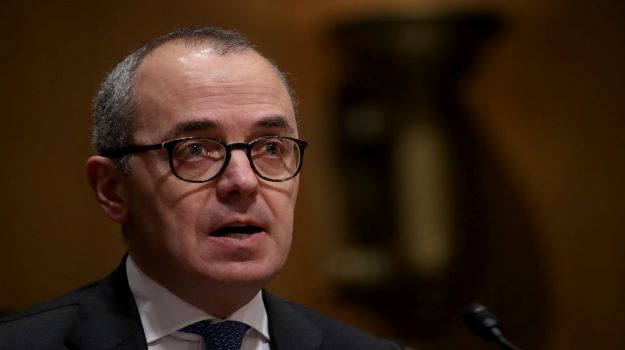Unlike many pharmaceutical companies, Bristol Myers Squibb didn’t fully jump into the race to produce a COVID-19 vaccine or cutting-edge new treatment. Instead, the pharma’s 2020 focus was on getting medicines into people’s hands (providing drugs for free to those who lost jobs amidst pandemic), protecting staff and integrating Celgene’s workforce and products into one massive company after one of the world’s largest pharma acquisitions.
With the addition of Celgene at the end of 2019, total revenue for the company jumped 63% over 2019, resulting in a whopping $42.5 billion. Earnings like that are rewarded.
BMS CEO and board chair Giovanni Caforio, M.D. saw a 7% raise in his overall income. In his fifth year as CEO, his take-home was about $20.15 million – an almost $1.7 million base pay plus $13.5 million in stock awards, with another $5 million in incentive plan pay with “other” pay. This puts Caforio in the 75th percentile for CEOs in his peer group, according to the financial release from BMS.
Caforio also enjoyed some other perks due to helming a massive corporation amidst a global pandemic. His “other pay” included use of the corporate jet for personal use to protect his health, because according to the release, “the significant health and safety benefits for our CEO to use one of our aircraft arrangements for personal travel outweighed the incremental cost to the company.”
Less than a year after closing the Celgene deal, Caforio brokered another sizable buy – cardiology company MyoKardia. With $13.1 billion, BMS picked up ready-to-roll mavacamten for obstructive hypertrophic cardiomyopathy. Last week the company’s NDA was accepted by the FDA to review the drug with a target action date of next January.
BMS acquired Forbius two months prior to the MyoKardia purchase, expanding its oncology and fibrotic disease pipeline.
The company snagged three FDA approvals for new drugs inherited from Celgene’s late-stage pipeline. Zeposia for MS is anticipating sales in the $1.6 billion ballpark. Reblozyl for myelodysplastic syndromes and Onureg for acute myeloid leukemia also gained FDA approval. Last month Celgene-acquired CAR-T Therapy Breyanzi was approved by the FDA for B-Cell Lymphoma patients.
The turn of the calendar did bring one massive disappointment to investors in Celgene’s CVR. Due to an FDA inspection holdup, Celgene’s liso-cel cancer drug didn’t get approved by the 12/31/20 deadline, making the CVR payout dead in the water. The payout would’ve been $6.4 billion to investors had the three milestones been met. The drug was finally approved in February, just missing the boat for a massive investor payday.
In addition to a global pandemic, 2020 has been a year of acknowledging racial inequalities in the U.S. Caforio laid out a goal to “build an even more diverse and inclusive organization, including achieving gender parity at the executive level globally and doubling executive representation of Black/African American and Hispanic/Latino employees in the U.S. by the end of 2022.”
Overall, the company had a great year. BMS delivered a 7% pro forma revenue increase with an “excellent commercial execution, particularly during a global pandemic” according to the release. Top drug sales included Revlimid at $12.1 billion, Eliquis at $9.2 billion and Opdivo and $7 billion.
In the company’s own words, “2020 was a pivotal year for Bristol Myers Squibb. We made significant progress integrating Celgene and successfully advancing our pipeline. We launched new medicines in the midst of a global pandemic and advanced our commitment to accelerate health equity, and diversity and inclusion efforts.”

